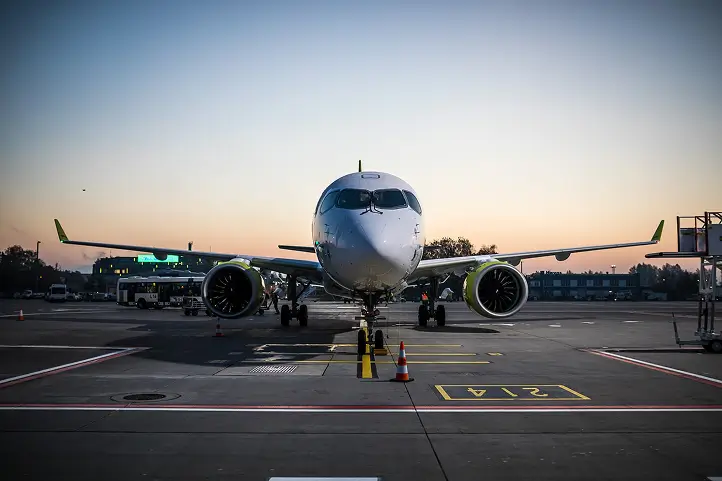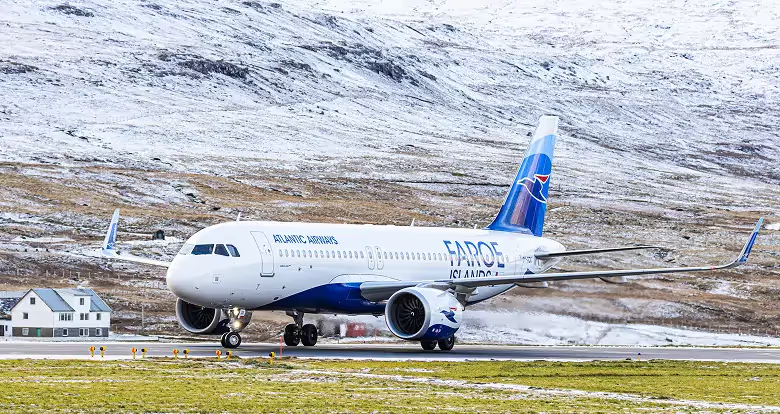Introduction to Aviation Trends
When you think about the aviation industry, what comes to mind? Perhaps it's the excitement of jetting off on a holiday, or the convenience of flying for business. But there's a lot more to aviation than just travel. The industry is constantly evolving, with new trends shaping the ways in which we fly. This article will delve into those aviation trends, providing an in-depth industry analysis that will shed light on the future of air travel.
The aviation industry is one that is always on the move. From technological advancements to changes in passenger behaviour, the sector is constantly adapting to new challenges and opportunities. And in recent years, sustainability has become a prominent trend in aviation, as the industry seeks to reduce its environmental impact and move towards a more sustainable future.
To understand the current trends in aviation, it's important to first understand the current state of the industry. So, let's take a look at where the aviation industry stands today.
The Current State of the Aviation Industry
The aviation industry is a vital cog in the global economy. It facilitates tourism and trade, connecting people and places across the world. However, like any other sector, aviation has its share of challenges. From volatile fuel prices to geopolitical uncertainties, the industry has had to navigate a turbulent landscape.
In recent years, one of the most significant challenges facing the aviation industry has been the issue of sustainability. With aviation accounting for around 2% of global CO2 emissions, there has been growing pressure on the industry to reduce its carbon footprint. This has led to a number of initiatives aimed at making aviation more sustainable, including the development of more fuel-efficient aircraft and the exploration of alternative fuels.
However, despite these challenges, the aviation industry has also seen some exciting developments. The rise of aviation technology, for instance, is transforming the way we fly, while trends such as air charter special missions are opening up new possibilities for air travel.
Analysing the Future of Air Travel
When it comes to the future of air travel, there are a number of aviation trends that are set to shape the industry. One of these is the growing use of aviation technology. From artificial intelligence to virtual reality, technology is revolutionising the aviation industry, enhancing the passenger experience and improving operational efficiency.
Another trend that is set to shape the future of air travel is the rise of air charter special missions. These missions, which involve the use of private aircraft for purposes such as medical evacuation or disaster relief, are becoming increasingly common. This reflects a broader trend towards personalised and bespoke air travel, as consumers seek out more tailored and unique flying experiences.
The Role of Aviation Technology in Industry Transformation
As mentioned earlier, aviation technology is playing a crucial role in the transformation of the industry. Advances in technology are not only enhancing the passenger experience, but also helping airlines to operate more efficiently and sustainably.
For instance, artificial intelligence is being used in everything from flight scheduling to baggage handling, helping to streamline operations and reduce costs. Meanwhile, virtual reality is changing the way pilots are trained, allowing for more realistic and immersive training experiences.
Aviation Sustainability: The Drive Towards a More Sustainable Future
Sustainability is a major trend in the aviation industry, and it's one that is set to shape the future of air travel. From the development of more fuel-efficient aircraft to the exploration of alternative fuels, the industry is making significant strides towards reducing its environmental impact.
One of the key drivers of this trend towards sustainability is the push for carbon neutral aviation. This involves reducing CO2 emissions from aviation as much as possible, and offsetting any remaining emissions through initiatives such as reforestation or carbon capture and storage.
The Path to Carbon Neutral Aviation
Achieving carbon neutral aviation is a complex and challenging task, but it's one that the industry is committed to. A number of strategies are being pursued in order to reach this goal.
One of these is the development of more fuel-efficient aircraft. By improving the design and performance of aircraft, it's possible to reduce the amount of fuel they use and, in turn, their CO2 emissions. Another strategy is the use of alternative fuels, such as biofuels or hydrogen, which can significantly reduce the carbon footprint of aviation.
The Impact of Aviation Trends on Passenger Experience
These aviation trends are not only shaping the industry, but also the passenger experience. From the use of technology to enhance in-flight entertainment, to the rise of personalised air travel, these trends are changing the way we fly.
For instance, the growing use of technology in aviation is enabling more personalised and immersive in-flight experiences. Meanwhile, the rise of air charter special missions is providing passengers with more tailored and unique travel experiences.
Challenges and Opportunities in the Aviation Industry
While there are many exciting developments in the aviation industry, there are also a number of challenges that need to be addressed. From the environmental impact of aviation, to the need for improved safety and security, these challenges present significant obstacles for the industry.
However, these challenges also present opportunities. The drive towards sustainability, for instance, is not only helping to reduce the environmental impact of aviation, but also opening up new opportunities for innovation and growth.
Conclusion: The Future of Aviation Industry
In conclusion, the future of the aviation industry is set to be shaped by a number of key trends. From the rise of aviation technology to the drive towards sustainability, these trends are transforming the industry and the way we fly.
However, while these trends present exciting opportunities for the industry, they also pose significant challenges. The industry will need to continue to innovate and adapt in order to navigate these challenges and steer towards a more sustainable and prosperous future.
So, as you embark on your next flight, take a moment to consider the trends that are shaping the industry. And remember, the future of aviation is in the air!
Get in touch with any questions about your air charter needs



